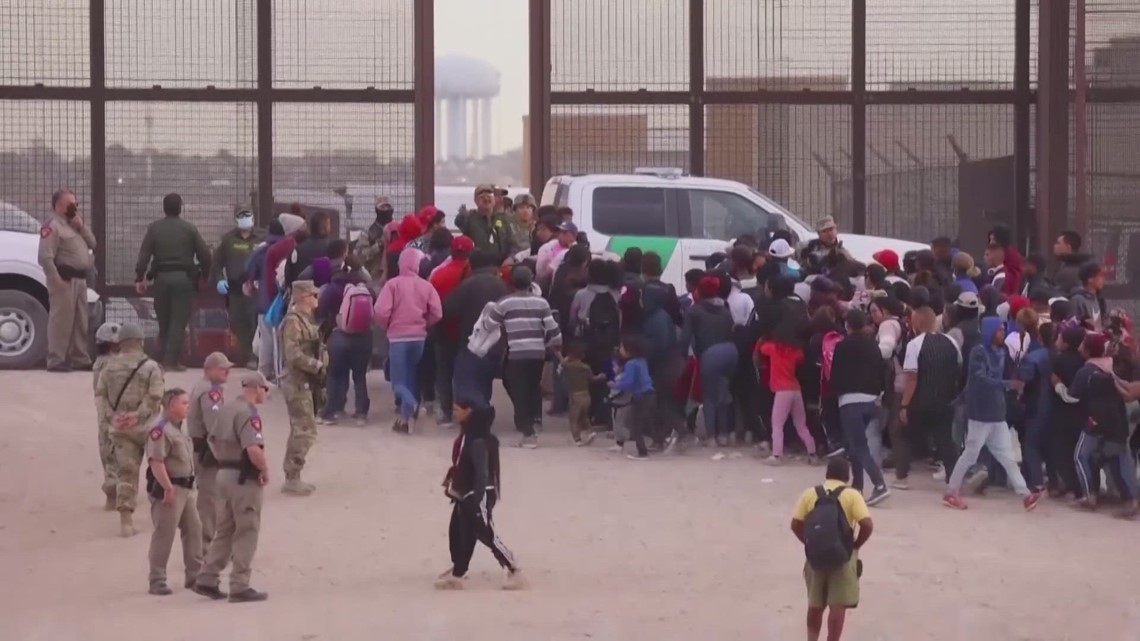
U.S. Officials have said the U.S. will return to enforcing Title 8 law after Title 42 expiries, but Title 8 has been open for interpretation.
SAN ANTONIO — On Friday, Homeland Security Secretary Alejandro Mayorkas said new immigration rules would be released before Title 42 expires and said Title 8 would again be enforced.
“In a post Title 42 environment, we will be using our expedited removal authorities under Title 8 of the United States Code,” Mayorkas said. “That allows us to move individuals very quickly.”
Benjamine “Carry” Huffman, the acting Deputy Commissioner for U.S. Customs and Border Protection, echoed that message.
“We will be relying on our decades old Title 8 process that we have used time and time again in the past to enforce the law and protect the border,” Huffman said.
Title 8 is a long, heavily amended, and yet at the same time very dated U.S. Code that has hasn’t been followed by the letter for some time, at least according to immigration attorney Gerardo Menchaca.
“The president can order the Department of Homeland Security to change its interpretation of how the law is interpreted and executed even though the law doesn’t change,” Menchaca said. “Happens all the time.”
Menchaca also said past U.S. presidents have used executive orders to change immigration rules. Put that all together, and Menchaca said it’s almost impossible to know how the new rules will work until they studied and debated in black and white text. Menchaca said the latest Title 8 interpretation could actually be tougher on immigration in some respects.
“President Biden is stepping up enforcement and basically creating a system that is somewhat like Title 42. He’s raising the bar on what it takes to qualify for asylum…making it harder for people to qualify,” Menchaca said.
At the same time, Menchaca said Biden wants to put centers in various parts of Latin America where people can apply for asylum. This could make the process easier while also reducing the amount of immigrants at the border, though it is unclear where the president has authority to do so.
“He may do this under Title 8, or he may just create executive orders to sit on top of Title 8,” Menchaca said.
Whatever new rules come after Title 42, Menchaca told KENS 5 he and other attorneys would likely take several months studying exactly the new rules would be enforced.
Based on reporting from CBS News, new regulations could disqualify migrants from asylum if they fail to request it in another country they travel though to get to the U.S. Entering the U.S. illegally could also result in a five year ban, or longer, before the individual could make a legitimate asylum claim.
Menchaca said its also possible that some attorneys would challenge the new rules.
“Usually immigration attorneys get together and say, ‘You know that doesn’t sound right.’ We find arguments to challenges the rules and let a federal judge decide. That’s how it has played out over the last 10 years,” Menchaca said.
That review of new rules can also take several months in some cases. Menchaca told KENS 5 the current version of Title 8 had technically not been updated since around 1980 and is due for an overhaul. He said multiple administrations have tried to pass immigration reform bills since that time, but none have been successful.
Original News Source
Running For Office? Conservative Campaign Management – Election Day Strategies!
